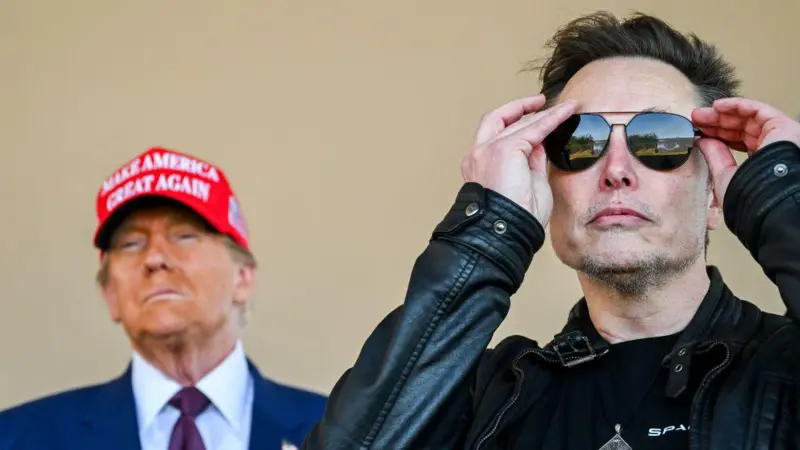Unde venis, Berlín?
- Pablo Díaz Gayoso

- Mar 3
- 4 min read
Updated: Mar 7
On February 23, in just under two weeks, Germany will face the most momentous elections in its recent history. The outgoing coalition government, led by Olaf Scholz and the SPD, with the qualitatively significant participation of the liberal FDP (Finance) and the Greens or Die Grünen (Foreign), has been a failure. The problems faced by the first government of the post-Merkel era have not been minor. The main turning point has been the war in Ukraine, a conflict that has dragged the country into several security and defense, energy, economic and political crises. Now add the potential trade crisis announced by the new Trump administration.
Germany was severely exposed in security matters after the Russian invasion of Ukraine, and not only because of the challenge posed by a revisionist nuclear power seeking to redraw European borders by force. Adding to this problem is the sabotage of the Nord Stream I and II gas pipelines in September 2022. These pipelines were built in 2021 to secure (and increase) Russian natural gas supplies to Germany. The German country, for decades, has bet much of its industrial development and even its welfare on the purchase of Russian gas at low cost. So, when the attack that made the gas pipelines unusable took place, one of the vital infrastructures for the main engine of Europe was being attacked. As of today, Germany has not yet published the results of the investigation into who was responsible for the attack, thus showing a major gap in security and also in its deterrence capability.

The energy crisis has been aggravated by the abrupt cut-off of Russian sources of energy supply as a result of the invasion, certified by the sanctions imposed. If we take the period from 2021 to 2023, we can see how it has reduced its gas consumption by 17.64%. This caused Germany to look for new sources of supply to replace at least part of the gap left by Russia, as Germany's domestic production does not reach 6% of the country's gas needs. To this end, the supply routes of Liquefied Natural Gas or LNG were reinforced, mainly from the United States and Qatar, which is considerably more expensive and polluting than that which comes via pipeline. They also sought to redouble the supply from European countries such as Norway and the Netherlands, which increased their production for this purpose. However, the current energy situation has forced the country to accelerate the green transition. To this end, the Scholz government passed a law to ensure that by 2032, 2% of Germany's territory is earmarked for the installation of wind power infrastructure.
In economic affairs, the situation is critical for what until recently was the consolidated engine of Europe. The problems that are now palpable have been looming since 2022. Germany has been in economic recession since 2023, and it is a recession whose chronification cannot be ruled out. Economic crises in Germany are nothing new, and neither are high inflation levels. In 2009, in the wake of the 2008 crisis, it suffered a 5.5% contraction in GDP; and in 2020, with the COVID-19 crisis, the country's GDP also fell by 4.1%. However, the characteristics of the crisis unleashed in 2022, which we mentioned earlier, attack the country's main artery. The exponential rise in energy prices has affected all sectors of the economy. The rise in inflation to 10.2% in the autumn of 2022 is having a slow decline by Germanic standards.
In addition, in the wake of the 2008 crisis, Angela Merkel's German government introduced constitutional changes to limit the public deficit to 0.35% of nominal GDP (Art. 109.3 of the Constitution). This measure has left the current government with its hands tied to take the necessary measures to solve the crisis. This limitation has cost Scholz two consecutive problems: the first was that the Constitutional Court declared in 2023 that his draft budget for 2024 was unconstitutional because it included too much spending on the Climate Fund (60 billion euros). This ruling strained relations in the government coalition, especially between the Greens and the Liberals, which, despite not breaking the government that year, marked its death date for the following year.

In autumn 2024, and after the elections in the eastern Länder of Thuringia, Saxony and Brandenburg, the Scholz government coalition was fatally wounded. The most serious situation occurred in Thuringia, where the Alternative for Germany (AfD) won the elections with 32% of the votes and 32 seats, followed by the CDU with 23.2% and 23 seats. The Sahra Wagenknecht Alliance won 15.8% and 15 seats; Die Linke went from 31% and 29 seats in the previous elections to 13.1% and 12 seats. In fifth place was the SPD with 6.1% and 6 seats; the Greens with 3.2% and 0 seats; and the FDP took 1.1% of the vote and was also left out of the state parliament or Landtag. In short, the parties in the government coalition found themselves in a situation of existential crisis, especially the minority coalition partners. For that reason, for the negotiation of the budget for 2025, both parties submitted proposals that were impossible to implement as a pre-campaign for Scholz to terminate the legislature and call for an early election. So, following the constitutional protocol and once the government coalition was broken, Scholz presented a motion of confidence before the Bundestag with the aim of losing it and thus legitimize an electoral advance scheduled for February 23rd.










Comments